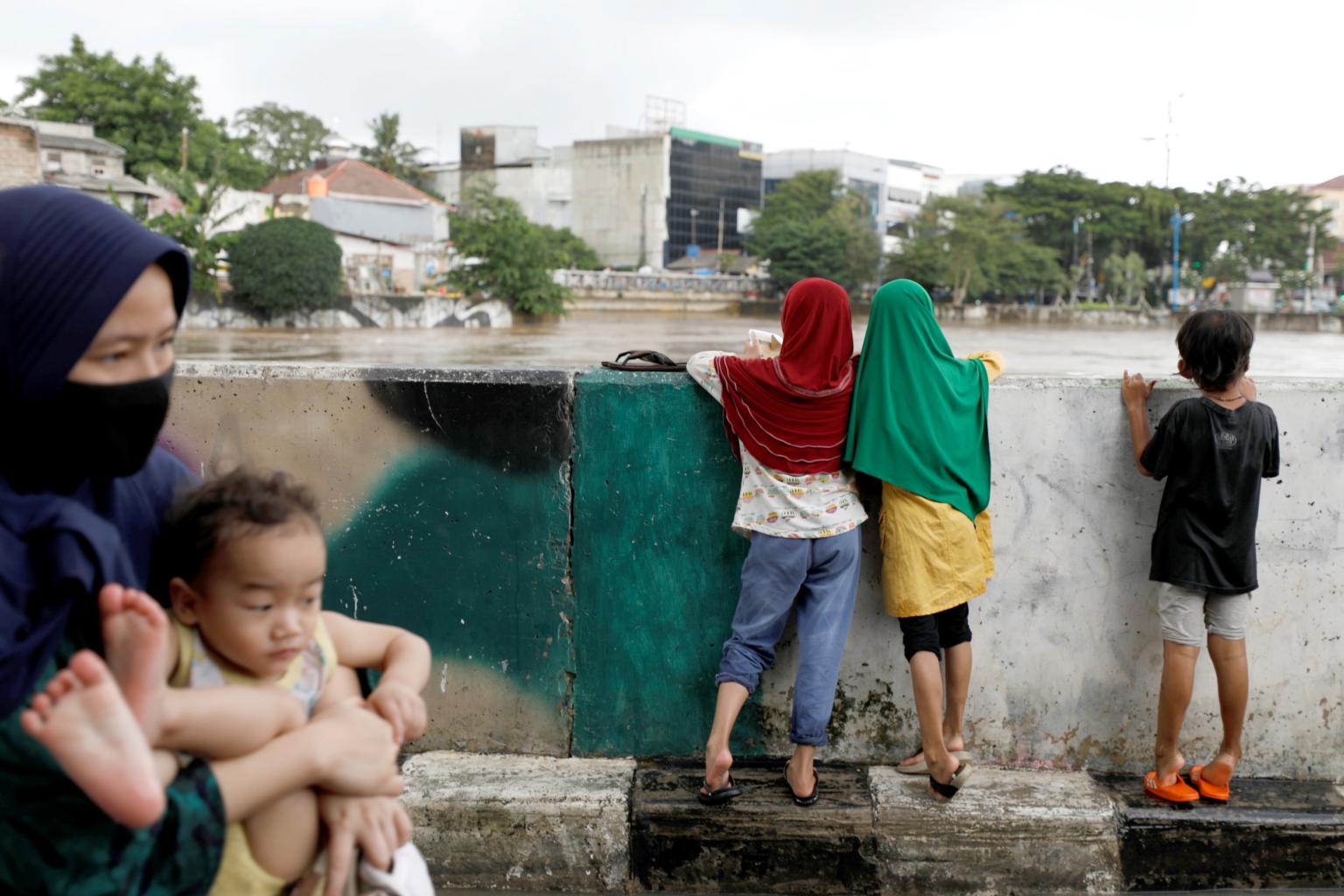Covid-19 pandemic pushes more into child labour in Indonesia
Sign up now: Get insights on Asia's fast-moving developments

Around 4.05 million children in Indonesia are estimated to be working.
PHOTO: REUTERS
JAKARTA - For the past year, Indonesian teenager Amir (not his real name) has been working as a porter in a fish auction centre near Paotere port in Makassar, South Sulawesi.
The 17-year-old vocational school student often skips virtual school sessions to work instead, earning a day's wage of between 30,000 and 50,000 rupiah (S$2.80 to S$4.70) for over six hours' work.
His income helps his mother, a snack vendor, who must make ends meet for the family. His father was laid-off soon after the Covid-19 pandemic struck Indonesia in March last year.
"My job is hard, but what else can I do? I need to make a living for my family," he told The Straits Times over the phone from home, adding that he wanted his three younger siblings to be able to focus on their studies.
Covid-19 has infected 1.39 million and killed 37,757 in Indonesia as at Tuesday (March 9). The pandemic has also pushed 2.76 million more Indonesians into poverty and driven the poverty rate to its highest level since March 2017, Statistics Indonesia says.
Some 27.55 million were living below the poverty line in September last year, when the poverty rate surged to 10.19 per cent; the rate was 9.22 per cent a year before.
An estimated 4.05 million children work in the world's fourth-most populous nation of nearly 270 million. Of this figure, 1.76 million are deemed to be undertaking the worst forms of child labour, which are dangerous jobs.
The actual increase in their numbers are hard to pinpoint, said Mr Achmad Marzuki, executive director of Jarak, a network of non-governmental organisations (NGOs) tackling child labour issues
Rising poverty is indicative of more being pushed into child labour, he said.
The International Labour Organisation said that some studies show that a one percentage point rise in poverty leads to at least a 0.7 per cent increase in child labour in certain countries.
"The trend is apparent if we look at facts on the ground. There have been 'silver men' everywhere," he said in reference to street performers covered in metallic paint from head to toe to beg for money. "There have been more children working in agriculture and fisheries, too."
Ten-year old Jonathan Sigalingging was killed while working as a silver man last August when he was hit by a truck in Medan, North Sumatra.
In Lombok, West Nusa Tenggara, NGO Tunas Alam Indonesia Foundation (Santai) found that some children had taken heavier and physically demanding jobs, such as operating tractors and carrying agricultural produce.
Such reports are in line with the observation by the National Child Protection Commission (KPAI) across 20 cities and regencies across the country, including Batam, Medan and Tangerang. It found that the worst types of child labour had grown in form. Street children, for instance, who used to sell newspapers, snacks and mineral water, had after the pandemic become silver men, clowns and buskers.
KPAI commissioner for child trafficking and exploitation, Ms Ai Maryati Solihah, said that the pandemic posed a challenge to Indonesia's goal to end child labour by 2022. She noted that there had been no policy to specifically address the child labour situation during the pandemic.
"It is assumed the situation is normal, while actually the pandemic has created complexity in child labour," she said, adding that the risk of exploitation of child workers and human trafficking is now higher.
Mr Asep Gunawan, director of child and woman labour norm supervision at the Manpower Ministry, said that his office would issue policies to address the child labour situation amid the pandemic, but did not elaborate.
Ms Keumala Dewi, executive director of the Centre of Child Study and Protection (PKPA), which works in five provinces, including North Sumatra and Aceh, said: "Some (children) worked after school prior to the pandemic. But during the pandemic, they must work from morning to evening to fulfil a target or to get extra cash for their families, as their parents lost their jobs.
"They don't separate their time to study and work anymore. This is perhaps one negative effect of the home-based learning that is not well controlled and observed by the government."
Amir, who used to work only on weekends prior to the pandemic, said: "I hope the pandemic will soon be over and the economy will recover, then I can return to school."


